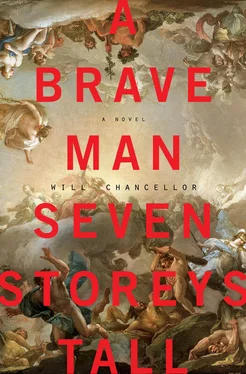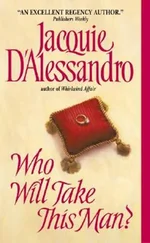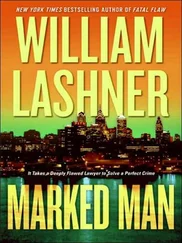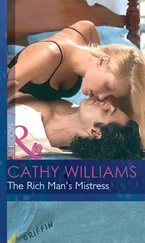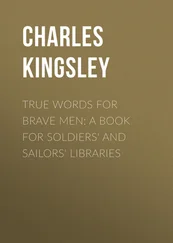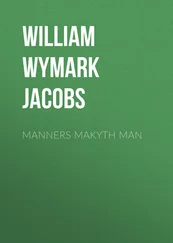Will Chancellor
A Brave Man Seven Storeys Tall
— I’m gonna close with a quote from Dr. Johnson: “The certainty that life cannot be long, and the probability that it will be much shorter than nature allows, ought to awaken every man to the active prosecution of whatever he is desirous to perform. It is true that no diligence can ascertain success; death may intercept the swiftest career; but he who is cut off in the execution of an honest undertaking has at least the honour of falling in his rank, and has fought the battle, though he missed the victory.”
The whole idea of a pregame speech seemed kind of meaty for a water polo team. Looking to an Enlightenment figure for a battle cry? Questionable to quite questionable.
The underclassmen missed the quote, thinking every word was Owen’s. To them, he was indestructible and elect, Athens-bound, senior, and capable of saying such things. They knew the Owen profiled on websites, had read his capsule summary in magazines during the run-up to Sydney, and thought he’d competed like a veteran, not a teenager, in those two minutes he churned Olympic water.
To the players who had been around Owen longest, to those who had faced him in the pools of Burbank, Woodland Hills, Riverside, and Van Nuys, to those who also made the Under-16 National Team and bunked with him in dorms all over the Eastern Bloc, to those who had grown up under constant pressure to perform and knew the inner walls of an Olympic pipeline — which is to say, to those who knew him best — he was inscrutable, aloof, and mystic, which was why he was a co -captain, and why his choice of source material wasn’t all that surprising.
Never before in his collegiate career had he given a speech or had more than a few words for a teammate. This three-minute meander, his coach’s idea, had cost him last night’s sleep and made him skittish. His co-captain was just about to start a round of pity claps when Owen added one last salvo, one last farewell to college sports:
— Fuck Dr. Johnson. This is my last Big Splash, and this is a victory none of us is gonna fucking miss.
At Owen’s profanity, each player stopped stretching his shoulders, flapping his arms, twisting his neck, and fell silent. It took a moment, but Owen’s words began to register on their faces. The freshmen, whose college personalities were only a few months old, caught the mood and began shoving each other, moshing around the locker room until the trainers had to intervene. The melee grew so loud that the fans outside grew quiet. Now Owen’s co-captain brought everyone down to a hush and then asked in his most resonant growl:
— Whooose House?
The team cinched their robes, knotted their cardinal-red caps, and exited with their hands held high, applauding the spill of fans on the bright green slope. Blankets, quilts, and towels covered the damp grass from poolside to chain-link fence. Half the crowd was solid red, the other blue and gold. Students’ biology textbooks were closed, highlighters marking places. Most fans were standing. Someone even had a sign: a woodcut print of the Stanford head coach over the single word OBEY.
While a warbled karaoke version of “The Star-Spangled Banner” played from the blown-out stadium speakers, Owen pulled at his lapels, studying them. He turned to his co-captain.
— I’ve felt like an asshole in this thing all season.
The terry-cloth bathrobes were a remnant of days before the advent of wrap-foil blankets and heated benches. The robes were simple, and they worked. This year, however, a sophomore from Orange County, the unofficial social chair, had ordered something the team hoped would come across as ironic but feared would be read as vulgar. When the players unboxed the updated game robes, cardinal velour with satin trim, the manager asked everyone to check the jetted pockets for Hugh Hefner’s missing pipe.
In robes loosely belted, Owen and his co-captain took one step forward and waved. They stepped back from the applause.
— Everyone feels like an asshole in these things. But give him some credit. He managed to make guys more comfortable wearing Speedos than robes.
After the home team was announced, it looked as if the crowd might scatter and recline on the grass on this bright November morning, open textbooks, check phones, remember that water polo is a minor sport with minor implications. Before this could happen, an engineering student pulled the starter cord to a gas-powered blender and twisted the throttle to a roar. Students turned in alarm, then laughed, then sidled up for drinks. On the other side of the fence, a fan in board shorts and a bright red cape, wearing a cut-up Mikasa ball as a hat, sprinted into the stadium and started a cheer of “Go! Big! Red!” that lasted until tip-off.
High-knee jumps and an effort to land with menace. Each player cleared the lane line feet first, resurfaced, and took a few strokes of butterfly before slapping the water.
Seven on each side swam to their end and rested their necks on the lane line, treading water until the whistle blast.
Stanford won the sprint.
The first trip down the pool, Owen was met on the perimeter but backed down his man until he had established position in the hole. He squared up to the wing, fought off a foul to take a wet ball, and swept a shot to the far-side net before the wing defender could collapse.
Half of the arms in the crowd went straight into the air. A Cardinal roar swept across El Camino and echoed to the Bay.
Stanford’s second possession was more turbulent than the first. Water boiled in front of the goal as players drove at each other, shoulder to chest. The hole defender chinned Owen’s neck with his Balkan stubble, then a cheap elbow to the base of the skull. He gripped down on Owen’s suit and was called for a foul, but not an exclusion. Owen kicked the ball out to the driver, who one-timed it right back at Owen’s chest. For a full second the ball bobbed a little more than an arm’s length from Owen. Hard step-out, creating space. Ball cupped against his forearm in a backhand coil. Now the defender was trying to get called for a foul, elbow points two pestles mashing down trapezius. Owen shrugged off the defender’s weight and arched back his neck, face to the sky. The guard slapped and clawed. He was lower in the water and beat. Sprawled and tackling, now pulling at Owen’s shoulder. The goalie barking two other defenders to the hole. Owen rose high, elevating to the hip, wound tight as a discus thrower, a galvanized chain ready to loose the shot that made every goalie duck. He led with his chin, whipped his head—
Red water. Blue caps. Bodies.
Then all went white.
The clinic’s parking lot, intercut with clean arcs both yellow and white, both solid and dashed, belonged to a tarmac and not to this private facility that saw no more than a dozen patients at any time.
Professor Burr had parked his white Volvo in the shade of a ponderosa where he periodically glanced up from his book review to scan the clinic entrance and sip coffee from his aluminum thermos. He had been debating going inside, contrary to his son’s instructions, for the past half hour and had finally decided he couldn’t sit here any longer when he caught sight of Owen, knees near his chin, being wheeled through the parting glass doors. Wheelchairs aren’t designed for people that tall, Burr thought. Owen leapt from the chair, quick to show everyone that wheeling him to the entrance had been a ludicrous formality.
Owen had two walks: a confident kicking gallop bridging meters with each stride, and a flip-flop shuffle that whittled down his great height until he was almost merely tall. Walking out of a hospital called for his full-heighted stride. And he strode to his father’s car kicking pity, paperwork, and whatever else floated in the salt-stained air to the aether.
Читать дальше
